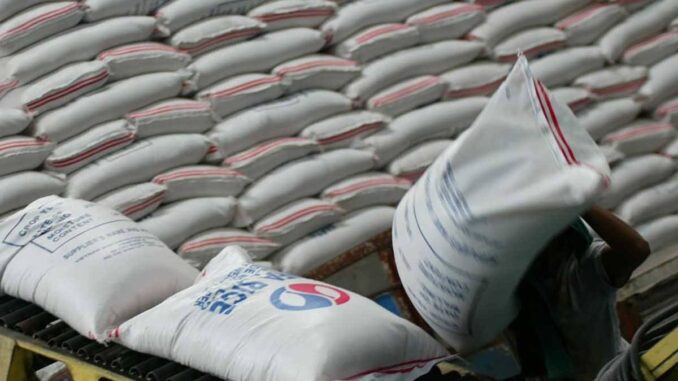
THE National Food Authority (NFA) has surpassed its palay (unmilled rice) procurement target for the whole year in just eight months.
The Department of Agriculture (DA)-attached agency said that from January to August, it had bought 3.8 million 50-kilogram (kg) bags or 190,384.85 metric tons (MT) of palay.
In August alone, however, the NFA only procured 64,199 bags or 3,209.95 MT of palay, just 16.64 percent of its target of 385,700 bags for the month.
“Despite these, the NFA remains committed to providing excellent service to farmers and farmer organizations, ensuring they have the opportunity to sell their harvest to the agency,” the agency said.
In August, the NFA distributed 24,267 bags of milled rice, or 4.43 percent of the target 547,200 bags. It attributed the shortfall to the low inventory of rice stocks. The majority, or 19,696 bags of NFA rice, were issued to the Department of Social Welfare and Development, Office of Civil Defense, legislators and local government units for relief and calamity response operations.
As of August 31, the NFA logged a total expected milled rice inventory of 3.02 million bags or 151,210 MT.
P9B secured
Meanwhile, Agriculture Secretary and NFA council chairman Francisco Tiu Laurel Jr. on Thursday said the remaining P9-billion budget for palay procurement this year had been secured. “The NFA will have enough funds to support rice farmers through the wet season, which is critical for their livelihood during this challenging period,” he said.
The Department of Budget and Management will release the budget in the last three months of the year.
NFA Administrator Larry Lacson said the funds will be used to purchase 7.2 million 50-kg bags of palay at P25 per kg.
“This volume aligns well with the NFA’s wet season palay procurement target of 6.4 million to 8.7 million bags,” Lacson said.
Earlier this month, the agency responsible for the country’s food security adjusted its buying price range for palay to P23 to P25/kg. In June, the NFA council previously raised the buying price range of P17 to P30 per kilo.
Despite the low buying price, Tiu Laurel assured farmers would still see a favorable return of their efforts. “Even at this adjusted price, farmers will continue to benefit from their hard work, especially given the improved price range we implemented earlier this year,” he said.


Be the first to comment